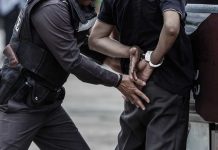
(USNewsBreak.com) – The Foreign Intelligence Surveillance Act of 1978 (FISA) is a federal law that establishes procedures and rules for gathering foreign intelligence. Passed in the aftermath of several intelligence controversies, including Watergate, it created both the US Foreign Intelligence Surveillance Court of Review and the US Foreign Intelligence Surveillance Court. Over the years, it’s undergone many amendments. It’s up for renewal this year, but the House attempted to block its passage.
This year’s bill, backed by House Speaker Mike Johnson (R-LA) and the Biden Administration, includes reforms to address civil liberties violations against Americans. However, GOP House members complained the changes didn’t go far enough.
The House passes a bill to renew a crucial national security spy program after GOP criticism earlier this week. https://t.co/LDxJDEsMOF
— CBS News (@CBSNews) April 12, 2024
Specifically, the issue revolved around Section 702, which allows the federal government to collect information — primarily electronic communications — of non-Americans not in the country without a warrant. However, there were concerns about Americans having their data exposed because of connections with those under surveillance.
Critics have long called for the government to obtain a warrant to access Americans’ data, even when agencies collected it amid a foreign investigation, as detailed above. Intelligence officials have countered, saying the additional step would hinder their efforts.
On Wednesday, April 10, Johnson brought the bill to the floor for consideration with a vote. With former President Trump’s support, House legislators shot down its renewal in a 228 to 193 vote. Afterward, Johnson said they would “regroup and reformulate another plan,” insisting Congress could not afford to let the program lapse.
Then, on Friday, the House ended up passing the bill to reauthorize it. However, lawmakers passed a revised version of the original. Typically, the act comes up for renewal every five years. To sway Republican members who previously voted against It, Johnson reduced the reapproval period to two years. The final vote on the matter was 273 to 147. Johnson plans to propose future changes to close the loophole allowing agencies to collect data on Americans without a warrant.
Copyright 2024, USNewsBreak.com












